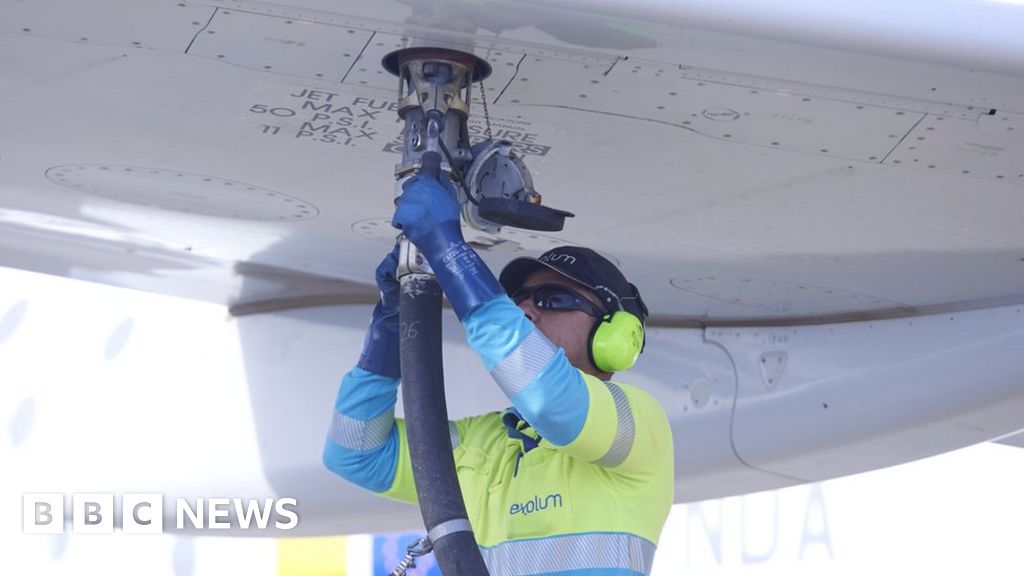On a typical day 1,300 planes take off and land at Heathrow Airport, and keeping that going requires around 20 million litres of jet fuel every day.
That’s the equivalent of filling up your car around 400,000 times.
It’s a massive operation, with fuel piped to the airport direct from refineries and then stored at two facilities know as fuel farms.
It’s a massive operation, with fuel piped to the airport direct from refineries and then stored at two facilities know as fuel farms.
Heathrow Airport itself does not buy and sell fuel, that’s down to the airlines and their suppliers.
However, it does have to think about the infrastructure, allotting space for storage and pipes, and making sure the airlines and fuel firms have everything they need.
“It’s really about building up the sufficient capacity to ensure that the airport has that resilience built in,” says Mr Prescott.
But, when it comes to fuel, airports around the world are having to have a major rethink.
In the UK, under the government’s Jet Zero plan, by 2040 the UK aviation industry has committed to achieving net zero carbon emissions.
On a typical day 1,300 planes take off and land at Heathrow Airport, and keeping that going requires around 20 million litres of jet fuel every day.
It’s a massive operation, with fuel piped to the airport direct from refineries and then stored at two facilities know as fuel farms.
That’s the equivalent of filling up your car around 400,000 times.
Heathrow Airport itself does not buy and sell fuel, that’s down to the airlines and their suppliers.
It’s a massive operation, with fuel piped to the airport direct from refineries and then stored at two facilities know as fuel farms.
It’s a massive operation, with fuel piped to the airport direct from refineries and then stored at two facilities know as fuel farms.
Heathrow Airport itself does not buy and sell fuel, that’s down to the airlines and their suppliers.
However, it does have to think about the infrastructure, allotting space for storage and pipes, and making sure the airlines and fuel firms have everything they need.
“It’s really about building up the sufficient capacity to ensure that the airport has that resilience built in,” says Mr Prescott.
But, when it comes to fuel, airports around the world are having to have a major rethink.
In the UK, under the government’s Jet Zero plan, by 2040 the UK aviation industry has committed to achieving net zero carbon emissions.
#airports #hydrogen #work #fuel
Note:- (Not all news on the site expresses the point of view of the site, but we transmit this news automatically and translate it through programmatic technology on the site and not from a human editor. The content is auto-generated from a syndicated feed.))



